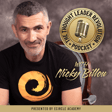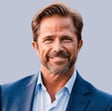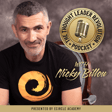
EP618: Dr Jennifer Nash - How To Win The War For Talent - Care About People
“When you focus on your people first, everything else falls into place. Take care of your people, they'll take care of your business.”
Are you tired of the traditional command-and-control leadership style that seems to stifle creativity and limit potential? What if there was a different approach that could elevate both your team and your business?
A fresh perspective on leadership and how embracing a more human-centered approach can unlock higher performance, retention, and success.
Breaking free from outdated leadership practices and shifting toward a model that prioritizes people over profits, ultimately benefiting both. Discover how this transformative way of thinking can help your organization win the war on talent and thrive in a post-pandemic world.
Dr. Jennifer Nash is the author of Be Human, Lead Human, and a thought leader in leadership transformation. With decades of experience across industries, Dr. Nash helps organizations reframe their leadership strategies, transitioning from rigid hierarchies to a more facilitative and coaching-oriented approach. Her expertise has helped countless companies reimagine how they lead, innovate, and retain top talent.
Expert action steps:
- Don’t be afraid to be yourself in a workplace.
- Trust first to get trust.
- Make people feel they matter.
Book: Be Human, Lead Human
Websites:
Dr. Jennifer Nash: https://drjennifernash.com/
Human Leader Index: https://drjennifernash.com/hli
HLI Masterclass: https://drjennifernash.com/humans-masterclass
Visit eCircleAcademy.com and book a success call with Nicky to take your practice to the next level.


















